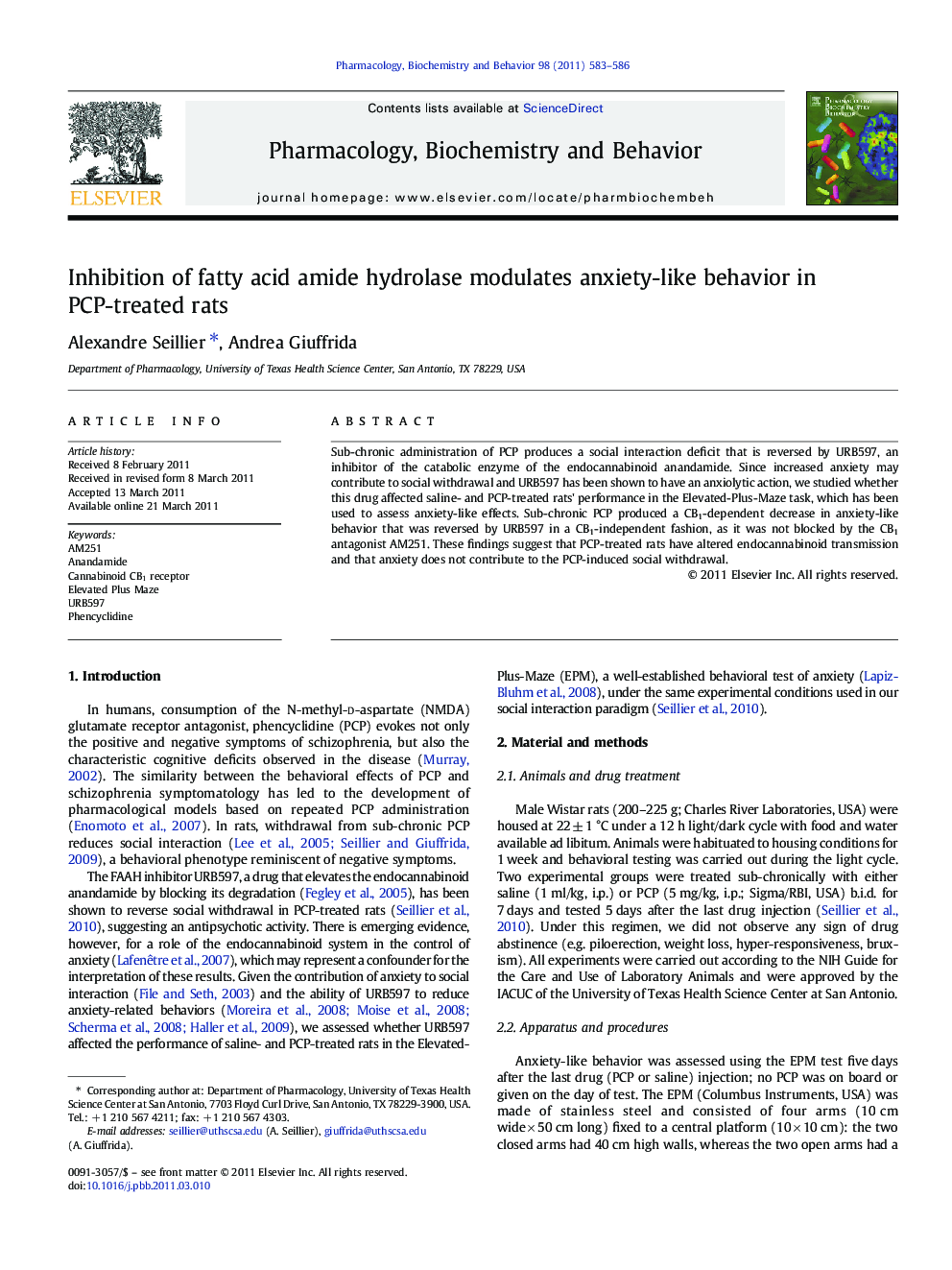| Article ID | Journal | Published Year | Pages | File Type |
|---|---|---|---|---|
| 2013358 | Pharmacology Biochemistry and Behavior | 2011 | 4 Pages |
Sub-chronic administration of PCP produces a social interaction deficit that is reversed by URB597, an inhibitor of the catabolic enzyme of the endocannabinoid anandamide. Since increased anxiety may contribute to social withdrawal and URB597 has been shown to have an anxiolytic action, we studied whether this drug affected saline- and PCP-treated rats' performance in the Elevated-Plus-Maze task, which has been used to assess anxiety-like effects. Sub-chronic PCP produced a CB1-dependent decrease in anxiety-like behavior that was reversed by URB597 in a CB1-independent fashion, as it was not blocked by the CB1 antagonist AM251. These findings suggest that PCP-treated rats have altered endocannabinoid transmission and that anxiety does not contribute to the PCP-induced social withdrawal.
Research highlights► PCP-treated rats have a CB1-dependent reduction in anxiety-like behavior. ► The FAAH inhibitor URB597 has no significant anxiolytic effect in control rats. ► URB597 has a CB1-independent anxiogenic action in PCP-treated rats.
